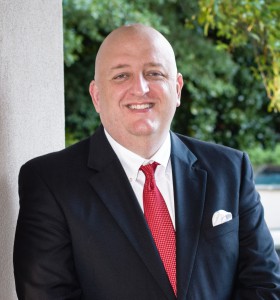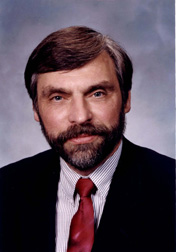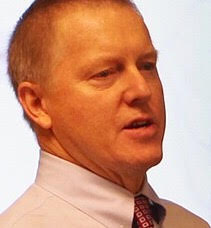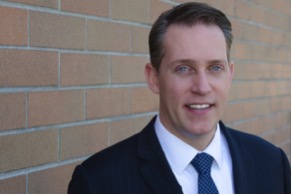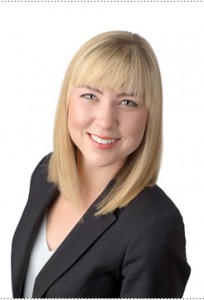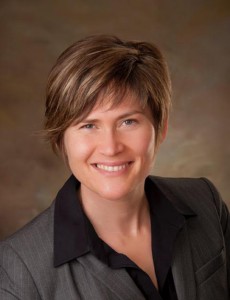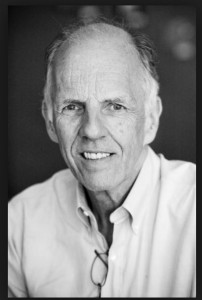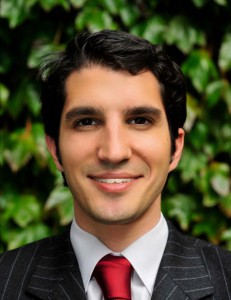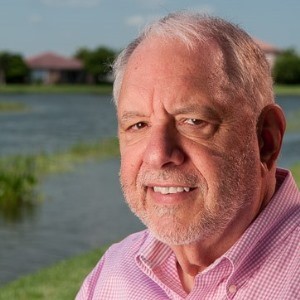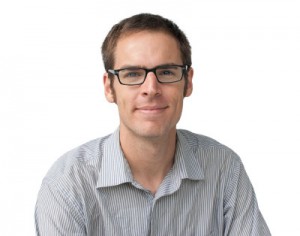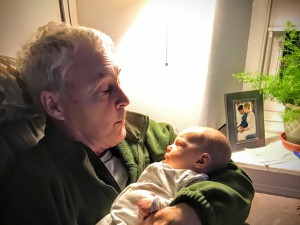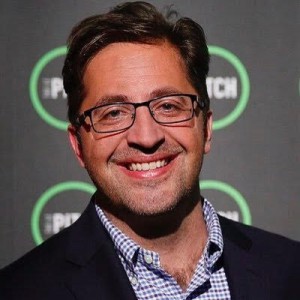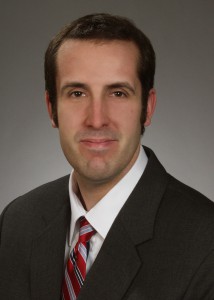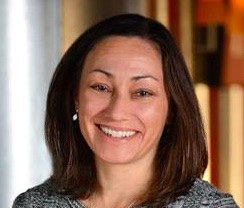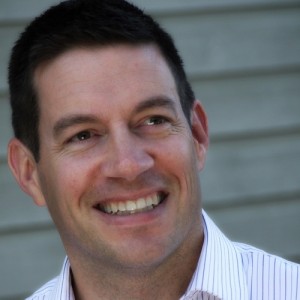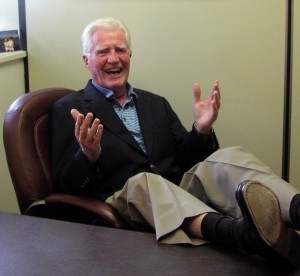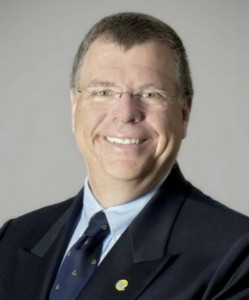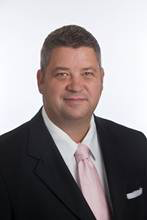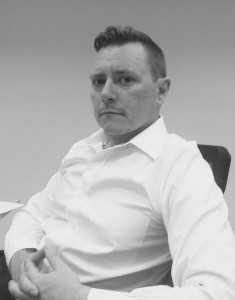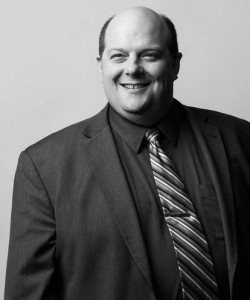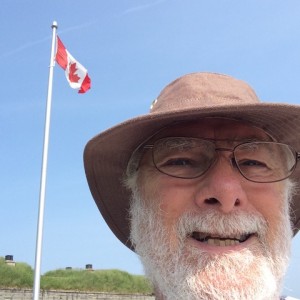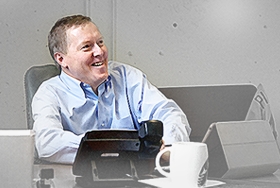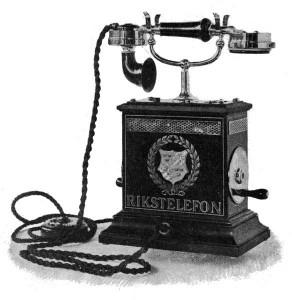♫ Ain’t nothing gonna change
Ain’t nothing gonna change
Till we learn to get together
And see who we really are…♫
Lyrics and music by: O. V. Akintimehin, D. Merriweather, A. W. Blakemore, recorded by Daniel Merriweather.
In this third and final instalment, we have predictions from:
- Ben Stevens
- Joe Kashi
- Kevin O’Keefe
- Tom Spraggs
- Amelia Rodin
- Kate Gower
- Buzz Bruggerman
- Pablo Cortés
- Mitch Kowalski
- Deborah McMurray
- Richard Granat
- David J. Bilinsky
Ben Stevens
I hope all is well with you and that you have a very Merry Christmas and a prosperous and Happy New Year.
Prediction: I believe that 2017 will see Apple continue to see increased adaption in the legal field in two areas. Attorneys will continue to find new ways to use the iPad into their practices to increase their efficiency and effectiveness in advocating for their clients. As more applications move to the web and become platform agnostic, more attorneys will use Macs in their practices. I believe that the MacBook Pro’s new TouchBar will be well received and make an already terrific computer even easier to use.
Bio and contact info.:
Ben Stevens is a highly respected family law attorney, who is based in Spartanburg, South Carolina. He is a Fellow in both the American Academy of Matrimonial Lawyers and the International Academy of Family Lawyers, and he is a Board Certified Family Advocate by the National Board of Trial Advocacy. Ben has published The Mac Lawyer legal technology blog since 2006, and he co-founded the Macs in Law Offices (MILO) forum in 2007, which has almost 5,000 members today. He has been a featured speaker at numerous conferences all across the United States as well as several other countries, and he can be reached at Ben@SCFamilyLaw.com.
Joe Kashi
Teri and I send our best regards and Holiday Greetings.
As to predictions, I have two:
- Artificial intelligence will increasing affect the legal profession in several ways:
- Legal research with a focused manually-generated starting point will become more efficient as AI techniques as applied to legal research become more sophisticated.
- AI will be increasingly used to take a specified fact pattern and then generate on a jurisdiction by jurisdiction basis the applicable legal framework of applicable law, with generated citations and likely causes of action, probably also generating starting point transactional forms and pleadings. That will raise the standard of law practice, but only if lawyers are adept and precise in first ascertaining the provable, actual facts.
- AI, when fused with “Big Data” at the trial court level on a national and jurisdictional basis, will become more adept at predicting the outcome of a case, especially bench-tried cases, than even experienced practitioners.
- IBM is already starting to do this with its Watson software.
- All of the above will put even more financial and competitive pressure on the legal profession as a whole.
- Experienced lawyers who have the resources and background to embrace the above will be at a competitive advantage compared to younger lawyers who cannot afford or who cannot use new AI-based approaches as clients seek the reassurance of perceived personal experience and ability to connect with clients.
- The above will also generally tend to widen the gap between rich clients who can afford the expensive analytical approach to a trial and poor clients who cannot. However, AI-based analysis of fact patterns generating transactional forms and pleadings may be particularly helpful to smaller firms and less well-off clients who cannot afford to throw massive amounts of manpower at a particular matter.
- The ease with which now-predominant digital data such as digital photos and video, documents, texting etc can be now be easily altered will increase skepticism about such evidence, resulting in a need to have better authentication of digital evidence, particuarly photos and video.
Joe Kashi received his BS and MS degrees from MIT in 1973 and his JD from Georgetown Law School in 1976. He is a litigator in Soldotna, Alaska, and has extensively written and presented about legal technology throughout the US and Canada since 1990.
Kevin O’Keefe
Bio: Kevin O’Keefe, a former practicing lawyer of seventeen years, is CEO and Founder of LexBlog, Inc., which helps lawyers build a name for themselves with the most comprehensive blog publishing solution in the legal industry.
Tom Spraggs
2017 Predictions
Thought the legal industry has reached a technological saturation point? Think again.
2017 will be the year where artificial intelligence (AI) makes its presence quietly ubiquitous. Lawyers already using any form of internet search are utilizing AI and feeding data to it. This will bring new and ever increasing security risks to lawyers who endeavour to keep information confidential. 2017 will require leadership from our industry to adapt, modernize and contextualize actual versus theoretical threats in this new computing age or we will be left behind as an industry.
Gone are the days where only somewhat interesting parties were tracked and data-mined. In 2017 the online activities of all interesting and uninteresting persons (including lawyers, haha) will be tracked simply by virtue of being a “wired-in” member of our society. Similarly, lawyers can expect more conversations to be clandestinely recorded by clients and non-clients alike. We expect (perhaps hope is the more accurate sentiment) savvy lawyers to respond by providing excellent service to all clients at all times.
Consumers require increased efficiencies in the delivery of legal services. Smart firms will capitalize and fill voids created by out-of-touch and out-of-date law firms. You’ve been warned (but do those firms read blogs anyway?). Similarly, law firms require dependable and secure avenues to communicate better with clients.
bio
In 2005 Mr. Spraggs took over Spraggs & Co. from his father and has since led the firm through significant growth. He holds a Bachelor of Laws, Master of Laws, and a Masters of Business Administration which has helped round out his expertise in running a successful personal injury firm among many other endeavors. Recently, his firm was acknowledged by the Canadian Bar Association with the 2016 Innovative Workplace Award. Within his practice, Mr. Spraggs works with a large team of experienced lawyers, investigators and claims managers to help British Columbians get access to justice. He is a litigator, arbitrator and technologist who has a passion for growth and the future. Mr. Spraggs is in the process of launching Solvere Inc., a digital platform aimed at increasing access to justice.
Amelia Rodin
As law student, who hasn’t “worked in the trenches” yet, I thought I’d simply comment on an area that I think law schools could benefit from focusing on:
I’d like to see law schools continue to build meaningful access to justice programs within their communities by partnering with local agencies to build more interdisciplinary connections. Law students have a lot to offer outside of the traditional “legal clinic” setting – and could contribute to local grassroots movements.
Access to justice movement over the next year will likely be shaped by both global and local events. Just recently, we’ve seen a pledge to increase the fund for Innocence Canada, in an effort to recognize those who have been wrongfully convicted. This may be a result of attempting to mitigate the effects of events across Canada and the US that have highlighted racial profiling and overrepresentation of minorities within the system. Commitments to continue immigration efforts will also affect the landscape of access to justice locally. There is certainly no shortage of ways in which students can become meaningfully involved in their community.
By doing so, students may feel more connected to actual legal practice, and identify a purpose, or at least an interest or passion, to incorporate into their future career.
Amelia Rodin is a law student with Russell Alexander Collaborative Family Lawyers, and begins Articling in 2017. Currently completing her final year of the Juris Doctor/Master of Social Work program at the University of Windsor, Amelia focuses her studies on the area of family law, including custody and access, child support, property issues and divorce.
Kate Gower
I am in Canada, so my predictions are for this country. We just successfully completed a 60-day electronic trial in Victoria, BC using a very simple e-trial platform I put together, so my predictions flow from what worked well there.
On the last day of our trial, the judge commented on the “flowing transcripts” coming from the Real Time reporter, saying “whoever decided to do that was a genius because they have been and will be irreplaceable.” The court and counsel from both big and small firms benefited from the Real Time reporting: it made it easier to participate in the trial, especially for small firms, since there was no need to take frantic notes during trial and it helped all parties with their direct and cross examinations.
I predict 50% of all trials over 3 days long will have Real Time reporting and – since right now I hear anecdotally that Real Time is “quite common” in larger courthouses, such as Vancouver – I predict that there will be a way to confirm if my first prediction has come true.
2. Simple technology in the courtroom will squeeze out the use of paper.
When I say “simple”, I mean a laptop at the front of the courtroom linked to “slave” monitors on the tables for all counsel, the judge and the witness. Counsel would bring their documents to court on a thumbdrive (or similar) and use this simple technology to review electronic evidence (PDFs) in the courtroom.
In our trial, the parties purchased and set up this simple technology in the courtroom. It meant we didn’t have to deal with the inconvenience of many binders of common book documents. It saved space and time. In Vancouver, two courtrooms are already set up with monitors on every table: there is a form parties can fill out regarding in-court technology.
I predict 50% of trials over 3 days long in Vancouver will use a laptop and monitors on all tables to review evidence electronically in court.
3. Full “electronic trial platforms” will be on everyone’s radar
In our trial, we had a SMART board to mark up documents and agreements between the parties so that the court could review and receive evidence entirely in an electronic format. Our trial proved it can be done with only “over the counter” technology in the courtroom (for a 3-minute video of the e-trial platform in action, see: http://dgwlaw.ca/tag/
Across Canada, other trials are being conducted by bringing databases of electronic evidence into court (For example: 1159465 Alberta Ltd. v. Adwood Manufacturing Ltd., 2010 ABQB 133). BC’s securities commission has been running trials this way for 10 years. There are also companies developing proprietary e-trial platforms (for example, Opus 2 in England and Court Innovations’ Matterhorn in the USA).
Both Colin Rule and Darin Thompson highlighted examples of how the tide is turning, bringing technology into the courtroom. Our judge repeatedly informed the parties during case management conferences that he would not welcome a “wall of binders” in the courtroom, which helped us lead the other parties to an e-trial. In 2014, an Ontario judge ordered the parties to conduct a trial electronically (Bank of Montreal v Faibish, 2014 ONSC 2178).
All parties in our trial agreed that our simple, full e-trial platform was a success and across Canada electronic trials are going forward. However, even though I predict a lot of simple technology will be used in BC’s courts, I only predict that there will be three fully-integrated electronic trials in Vancouver and Victoria in 2017. I predict I will be in the courtroom, avidly watching how they roll out.
About Kate Gower:
Kate works as a contract lawyer in all areas of Aboriginal Law, specializing in Aboriginal consultation and litigation. She has become a regular speaker on electronic trials since she helped DGW Law Corporation run a 60 day Aboriginal Treaty Interpretation Case as an electronic trial in the Supreme Court of British Columbia (West Moberly First Nation et al. v. B.C.). The case was the first electronic trial in Victoria. Trial ended in November 2016.
She has appeared before British Columbia, Federal and Northwest Territories courts. She also has experience as a neutral investigator in the resolution of workplace complaints under internal discrimination and harassment policies in the public and private sector. Kate did her law degree at the University of Victoria, articled at Fasken Martineau, and now has her own business contracting her legal skills to other law firms. Before law, Kate was a journalist for the CBC and CTV in Canada, and the BBC in the UK.
Contact Kate Gower:
Phone: (778) 384-6541
Email: kategower@mac.com
Contract Lawyer with
DGW Law Corporation
Barristers & Solicitors
2nd Floor, 736 Broughton Street
Victoria, BC V8W 1E1
Tel. 250.361.9469
Fax. 250.361.9429
Buzz Bruggerman
So here goes…
1. 2017 will be a year of political chaos in the US. I envision the country basically fragmenting into three groups. Those supporting Trump, those sane people in the middle trying to keep the Republic together and those on the left, fighting the political equivalent of guerilla war just the like the right wing Republicans have done over the last 8 years of the Obama administration. It will be interesting to see if Trump makes it to a second year without threat of impeachment for his venal willingness to comingle the public good with his private business interests.
For those willing to do future reading, see Juan Enriquez, “The Untied States of America” as a reference: https://www.amazon.com/Untied-States-America-Polarization-Fracturing/dp/0307237524
2. We will begin to AR/VR companies shipping life changing products. It’s still early, but some of the products I have seen are mind blowing. When and whether they will become commercially feasible and available is TBD
3. Products like Atlas Recall (www.atlas.co ) will completely change how we use our computers to search for information. We will begin to see the first round of AI programs that will have massive impact on what we now call “work”. I think Atlas Recall (www.atlas.co ) will rise to Unicorn status. It’s a bit like seeing and using it are like the first iterations of Google.
About Buzz:
First Happy Holidays!
Trying to change the world, and helping to connect great people.
ActiveWords Co-Founder, Tech Evangelist, connector, small town Minnesota boy, Duke grad, and serious Duke basketball fan.
Now working on getting Atlas Recall (www.atlas.co ) in front of his friends.
http://bit.ly/2fkLsIb has a bunch of links.
And David Pogue just posted a rave review about it on Yahoo Tech: https://yhoo.it/2eLCZ4l
And Verge covered it here: http://bit.ly/2gYSMuo
The app is dazzling.
Pablo Cortés
I hope all is well with you too. Here are my predictions:
- The UK Parliament will produce at the start of the year the Bill for the Online Court, which will be the largest of its kind and before the year ends the first tests will be scheduled. In the meantime the Canadian BC Civil Resolution Tribunal will be in full swing and it will represent the best model to follow and from which to learn valuable lessons.
- The publication of the data from the EU ODR platform will bring some disappointment because we will realize that few consumers have used it and that most merchants have refused to opt in. On the plus side, all the EU Member States will be joined by then, and the realisation of its limited success will lead to an investment effort to increase awareness and the use of public muscle to incentivise the merchant’s participation.
- I will publish another book on online dispute resolution but I will struggle to find funding, which will force me to go back into teaching full time with a new module on Dispute Resolution (and Technology!)
Look forward to read all the predictions for 2017.
Bio:
Pablo conducts research in the field of consumer law, civil procedure, ADR and ODR. He has advised the European Commission during the drafting of the ODR Regulation and ADR Directive and has been invited to write reports and to participate in expert meetings by the UN Commission on International Trade Law (UNCITRAL Working Group-III ODR), the European Commission Directorate-General for Health & Consumers (DG SANCO) and Justice (DG JUST) as well as by the European Parliament Internal Market and Consumer Protection Committee (IMCO) and the Legal Affairs Committee (JURI). Pablo serves on the advisory board of NetNeutrals and Youstice. He is a fellow of the National Centre for Technology and Dispute Resolutions (University of Massachusetts, Amherst) and in 2012 he was a Gould Research Fellow at Stanford University. He is also a member of the Online Dispute Resolution Taskforce of the International Mediation Institute and a member of the ODR Advisory Group of the Civil Justice Council in England and Wales. Pablo has published extensively and is now completing his third book on consumer redress.
Professor Pablo Cortés, Chair in Civil Justice
Leicester School of Law
University of Leicester, University Road, Leicester, LE1 7RH, UK
t: +44 (0)116 252 5332
e: pablo.cortes@le.ac.uk
w: http://www2.le.ac.uk/departments/law/people/pablo-cortes
Mitch Kowalski
Last year I did reasonably well in my predictions, which means I will be way off in 2017! Although the first one is easy:
- Dentons LLP will acquire at least one firm in 2017;
- Codify will win the Blakes Global Legal Innovation Challenge;
- Ryerson will be granted a law school;
- TWU will win in all jurisdictions at the Supreme Court of Canada; and
- Alberta will permit ABS for non-profit law firms.
Have a great holiday!!
About Mitch:
Mitchell Kowalski is the Gowling WLG Visiting Professor in Legal Innovation at the University of Calgary Law School, the Legal Innovation Columnist The National Post, and the Principal Consultant at Cross Pollen Advisory where he advises in-house legal departments and law firms on the redesign of legal service delivery. He is also the author of the critically-acclaimed book, Avoiding Extinction: Reimagining Legal Services for the 21st Century. His new book, The Great Legal Reformation: Notes from the Field will be published in early 2017. Follow him on Twitter @mekowalski or visit his website www.kowalski.ca
Mitchell E. Kowalski M.A. LL.M. ICD.D.
Barrister and Solicitor
Gowling WLG Visiting Professor in Legal Innovation, University of Calgary Law School
Author of: Avoiding Extinction: Reimagining Legal Services for the 21st Century
627 Bloor Street West 3/F
Toronto, Ontario
M6G 1K8
t: 416-294-6499
f: 877-689-0652
Deborah McMurray
In 2017, I predict that experience databases will finally get the due they deserve as a vital cultural and integration tool in law firm mergers.
As mergers and combinations of all sizes continue to fuel law firm growth, effectively capturing what’s in the brains of your top lawyers becomes even more mission-critical. For these combinations to be successful and profitable as early as possible, what lawyers have done and for whom must easily be discovered and extracted – and then put to great use: building trust, demonstrating relevant expertise and selling new work.
The most committed and aggressive firms have a mandate around experience collection and organization that starts with their firm chairs and executive committees. We have learned that top-down engagements have greater success than bottom-up.
100 percent of law firms want to manage this better. The firms that do it well give access to the lawyers – with a link to the experience database on their intranets, access to reporting features, even the ability to enter in details about a new matter. And lawyers who are serious about wanting to win more are accountable to keep their matter records current. Relevant, at-your-fingertips experience is critical to winning more practice-defining, or I should say, career-defining work.
In the very best systems (judged by the amount, quality, and relevance of data), lawyers are involved in the data-capture process in one way or another. To win more, this cannot be a marketing department “initiative” – it must have full support of and engagement by lawyers in the firm. And it must have active support from the firm’s C-suite or it won’t get done.
Trust doesn’t automatically transfer from one firm to another as soon as merger documents are inked. It gets a proven boost, however, when lawyers can instantly investigate the experience of their new colleagues, 24/7 and regardless of time zone. This is a sure-fire way for key lawyers around the globe to trust the strength and qualifications of each new lateral, and for each one to feel embedded and valued in your firm.
Deborah McMurray is founder and CEO of Content Pilot LLC, a strategy, design, content and technology company. Clients include the largest law firms in the world, as well as national, regional and powerful local firms. A former law firm CMO, Deborah and her team specialize in award-winning design of websites, proposal centers and experience databases, and important strategic initiatives, such as content strategy design and positioning/branding campaigns. In 2008, she was inducted into the Legal Marketing Association’s Hall of Fame and in 2007, was elected as a Fellow in the College of Law Practice Management. In December 2013, she was named as one of National Law Journal’s “2013 Top 50 Legal Business Trailblazers & Pioneers.”
Richard Granat
Here are my thoughts for 2017:
Introduction
I am a bit preoccupied by the coming chaos in the U.S. to be caused by the new administration so that lenses affects my thinking, probably more than it should. The Trump Administration will have an impact on the legal market in many different ways.
—The access to justice movement in the US will receive a setback. A President who had no respect for the first amendment is not likely to have much respect for the sixth amendment either. Authoritarian regimes resist empowering people to have more access to the legal system. The appropriation for the U.S. Legal Services Corporation will be cut or endangered, putting more pressure on the private bar to provide services who those who cannot afford a lawyer.
—If the U.S. Federal Trade Commission assumes a more free market bias, that may put pressure on state bar authorities to license or enable nonlawyers to provide legal services directly to the public. This limited deregulation will result in further eroding the market share of solos and small law firms.
–Litigation against the Federal Government will increase making more work for boutique law firms who represent interests that are opposed to the new administration policies. Expect much more litigation at the state and local level as well.
–Law firms based in Washington, D.C. that represent special interests will also do very well.
–Non-lawyer ownership of law firms will continue to be a “non-starter” in the U.S.
Profit-making law schools will go out of existence in the U.S., unless the Trump administration reverses the regulatory framework now it places that makes educational institutions more accountable. The recent withdrawal of eligibility for federal student loans for Charlotte School of Law, is the death knell for these institutions.
Funding for legal startups will dry up as funding sources (VC, Angel investors) become more aware of the difficult regulatory environment and the approach of states, like North Carolina, that seek to over-regulate legal software that serves the public directly.
ABA membership will continue to decline as it struggles to remain irrelevant in a rapidly changing environment. Declining membership is a good overall metric for the reputational decline of the legal profession in the US.
Bio:
Richard S. Granat is the founder and CEO of DirectLaw, Inc., a virtual law firm platform provider.
Richard S. Granat, Esq. CEO/Founder
DirectLaw, Inc. | SmartLegalForms, Inc.
http://www.directlaw.com
PH: 800-481-1025
Direct: 561 – 622-9971
Cell: 561-214-1306
E-mail: richard@directlaw.com |
Connect With DirectLaw:
| DirectLaw Blog |
Connect With eLawyering:
| eLawyering Blog
ABA Journal – Legal Rebel -2009
ABA Louis M Brown Lifetime Achievement
Award for Legal Access – 2010
ABA Keane Award for Excellence
in eLawyering – 2013
FastCase50 Winner – 2013
DirectLaw offers a virtual law firm platform that
enables solos and small law firms to deliver legal services online.
David J. Bilinsky
Looking back at my predictions for 2016, I think the majority fall in the ‘coming true’ category. Perhaps the time line is a bit longer than I thought…
This year I would like to address what I believe are structural fault lines in the legal profession and how these could impact us.
- Access to Justice. Many of the predictions have dealt with this issue, but this is my take on it. The public’s appetite for real access to justice has never been stronger. Put it another way: legal fees are deemed too high and court delays are deemed much too long for Joe Average. While judges, courts and lawyers are taking steps to address these issues, I think the real change is going to be happening outside the traditional legal arena. There are two projects in particular that I am keeping my eye on.
- The first is BC’s Civil Resolution Tribunal. This is the first legislated alternative to going to court and is built around new alternative ways to find a way to resolve disputes. It is now operational in strata (condominium) disputes and will shortly proceed to small claims cases. Once the Tribunal has demonstrated success (without judges and yes, without lawyers) then other cash-strapped governments will follow suit and create tribunals in particular niches that will remove more and more cases from the courts. The UK will shortly follow suit with Her Majesties Online Court. This demonstrates a fine example of Albert Einstein’s quote: “We can not solve our problems with the same level of thinking that created them.” In other words, continuing to flog the pro bono dead horse will produce about the same level of results for access to justice that it presently produces with about the same impact on society. As a result, the patience of the public is running thin. The public is wanting access to legal services at rates they can afford and that delivers results in a reasonable time.
- The second is the Rechtwijzwer website in the Netherlands. This is another example of how technology and a fresh way of thinking can produce meaningful results for the public in terms of resolution of legal problems. In this case, it is the issue of divorcing and separating couples. I understand that this project currently has helped over 700 dutch couples divorce for a total spend of €400 per couple. Compare the costs in 2013 in Canada: “Average fees for uncontested divorces have dipped to $1,018 from $1,500 and for separation agreements, $1,985 from $2,106. (editor: note that this is per person, not per couple” (per Canadian Lawyer Magazine).
- In BC I believe the Government will be looking to expand the powers of BC Notaries under the Notaries Act, under the rubric of expanding the range of providers that can provide basic legal services to the public. Notwithstanding this change, I don’t expect the cost of these legal services to drop, whether provided by notaries or lawyers. I also expect to see more and more organizations housing both lawyers and notaries under the same roof, as they recognize that this can complement each other’s range of services.
- There will be a rapid expansion in lawyers providing legal assistance to the legal marijuana industry in Canada (and also in the USA).
- Canadian lawyers (and their American counterparts) will continue to search for the desktop equivalent of the Holy Grail…that offers full featured practice management (calendaring, email integration, conflict checking, file management, document management, document generation), fully integrated general and trust accounting, time and billing, cloud storage, backup, portal and collaboration services and more from one vendor, rather than trying to link up disparate services.
- Artificial Intelligence (AI) will continue to invade the legal sphere. The effect on practising lawyers remains to be seen, but I think it is a ‘disruptive force’ once its power becomes better utilized and focused.
- Security, malware and ransomwear will continue to be a weak point for lawyers and law firms. Conversely, full-disk encryption and zero-knowledge backup services will assume greater importance for the firms that recognize their advantages.
- Lawyers will continue to grapple with how to drag their partners into the late 20th century from the technology standpoint and adopt firm-wide technologies that benefit the entire organization but which require the dinosaurs to change with the times.
- Lastly I think law is about to undergo some fundamental change. Young bright minds are realizing that better opportunities lie in emerging (technology and related) careers rather than in the traditional role of a lawyer. Law related organizations such as the American Bar Association are facing a decline in membership [“According to the Annual Report of ABA Executive Director Jack L. Rives as delivered to the House of Delegates at this year’s Annual Meeting in Chicago, dues paying ABA Membership is declining steeply. When I joined the Board of Governors in 2005, some 282,954 lawyers were dues-paying, card carrying ABA members. This year, the projected count is down to 232,538 lawyers” [2015]. I believe the Canadian Bar Association’s numbers are remaining static or similarly declining (Wikipedia states: The Canadian Bar Association represents over 37,000 lawyers, judges, notaries, law teachers, and law students from across Canada. According to the Wayback Machine, the CBA’s membership was 36,000 in 2000). While there will be a need for lawyers in the future, the rewards that law offers relative to the long hours and personal toil on lives will cause many to reflect and reconsider.
I believe as a profession we can change the profession for the better. We need leadership, vision and thoughtful action, perhaps now more than ever before. We can change if we learn, as judges, lawyers, court administrators and the public, to work together to help solve the bigger legal issues facing our communities and our culture. We can achieve much more working together than we can working apart. We owe it to our colleagues, our friends, our families and our communities.
David J. Bilinsky is a Practice Management Advisor and lawyer for the Law Society of British Columbia.
He is a Fellow of the National Center for Technology and Dispute Resolution (NCTDR) at the University of Massachusetts. He is also a Fellow of the College of Law Practice Management and past Editor-in-Chief of ABA’s Law Practice Magazine.
David is an adjunct professor at Simon Fraser University teaching a totally online, graduate level course in the Masters of Arts in Applied Legal Studies program. This MA program received the 2011 Award of Excellence from the Canadian Association for University Continuing Education. He designed and taught the first legal technology course in Canada for the University of Toronto Law School.
Dave’s mission in life is to empower lawyers to anticipate the changes, realize the opportunities, face the challenges and embrace the expanding possibilities of the application of practice management concepts to the practice of law in innovative ways that provide service excellence.
Dave is the founder and Chair of the Pacific Legal Technology Conference and a past Co-Chair of the American Bar Association’s TECHSHOW.
Dave writes regularly for many publications in the USA and Canada including being a contributor to the award-winning blog www.slaw.ca, its sister blog, tips.slaw.ca as well as his own blog: www.thoughtfullaw.com.
Dave has keynoted and delivered dynamic and thoughtful presentations to legal and judicial conferences, practice groups, legal organizations and law schools across the globe and is considered a visionary in terms of how technology and other forces are changing the practice of law and how legal organizations can take advantage of these changes.
His articles have been translated into several languages and republished across the globe. He has a Bachelor of Science and a Bachelor of Law from the University of Manitoba and a Masters of Business Administration from the University of British Columbia.
Dave is a long-distance runner who has completed 11 marathons including: Boston, Chicago, New York, Portland, Vancouver, Victoria; many half-marathons and other events. He is an avid downhill and cross-country skier and was a volunteer ski-patroller for many years.
You can contact him at daveb@thoughtfullaw.com.
♫ It’s coming on
It’s coming on
It’s coming on
It’s coming on
My future is coming on…♫
Lyrics and music by: Damon Albarn, Teren Devlon Jones, Jamie Hewlett, recorded by The Gorillaz.
(photo by Sean Creamer, used under a Creative Commons Licence)
The predictions are coming in fast and furious! In this Part 2, we have prognostications from:
- Jeremy Hessing-Lewis
- Stephen P. Gallagher
- Colin Lachance
- Jared Correia
- Tim Baran
- Niki Black
- Jordan Furlong
- Larry Bodine
- Darin Thompson
Jeremy Hessing-Lewis
Introduction:
- Law as a Lifestyle Company: Traditional commitments to the billable hour meant that the practice of law rarely worked in half measures. As a lawyer in private practice, your options tended to be 0% employment or 130% employment. With the emergence of creatively structured alternative fee agreements (AFAs), we will see more lawyers opt for less than full-time practices. This will include increasing numbers of practitioners pursuing phased retirement, parents with young children, and those with employment or interests outside of the practice of law. While AFAs and new technologies will give law firms the option of becoming lifestyle businesses, regulatory bodies will struggle to keep-up with these changing practices.
- If This, Then…: With practice management technology fragmented among an increasing number of web applications, lawyers will become increasingly interested in the connections between these applications (the application programming interfaces or APIs). Direct APIs allow independent applications to share information. More complex intermediary tools (e.g. Zapier, IFTT), will increasingly be used to weave together multiple APIs and automate administrative tasks within a practice. Ronco’s dream will finally be fulfilled: “Just set it and forget it.”
- Demographic Shifts: Baby boomer lawyers are starting to read obituaries of law school colleagues. There is no better motivation to reevaluate priorities than the passing of peers. The valuation and sale of practices will decline, to be replaced by younger lawyers who are simply willing to take on the files. For every client that is an asset, there is another that is a liability. We will see more succession planning that addresses continuity rather than cash.
- Renewed Commitment to Justice: Following Donald Trump’s electoral victory, the Lawyers of the Left secret Facebook group has accumulated over 188k members. Many of the posts to this group have featured lawyers from all practice areas renewing their commitments to justice. In particular, many mid-career lawyers have expressed a rekindled appreciation for why they went to law school in the first place.
Thanks Dave and best of luck in the new year!
- a business lawyer with Vancouver-based Small Law;
- a legal practice management consultant through Appropriate Legal Technology; and
- the Senior Digital Advisor at the legal marketing agency, Skunkworks Creative Group.
 |
Jeremy Hessing-Lewis / Senior Digital Advisor jeremy@skunkworks.caSkunkworks Creative Group Inc. 604.739.8976 600 – 55 Water StreetVancouver, BC V6B 1A1 http://skunkworks.ca |
Stephen P. Gallagher
Aging of the legal workforce has finally hit the “proverbial brink wall.” According to a recent Oregon Attorney Assistance Program (OAAP) Retirement Survey, of the 6000 members over 50 who filled out the survey, bar members 60 – 69 represented over half (53%) of survey participants. To add insult to injury, 50% of these respondents report that they are planning on retiring from legal practice in the next five years. The brain-drain is clearly underway.
- In order to continue to attract talent, law firms will have to demonstrate concern for senior partners who need support in moving away from full-time practice. Young lawyers will be watching this very quickly. The worst thing that a firm can do is to do nothing about it.
- In order to continue to attract talent, law firms will have to adopt more flexible career paths for all lawyers that include formal flex-time guarantees for both aging lawyer as well as mid-career lawyers, who may not want to “Die at their Desks”.
Stephen P. Gallagher sees himself as a student of the legal profession. I am a former Director of Law Practice Management for the New York State Bar Association. Currently, I am a Baby-boomer born in 1946, and since I have been working in the legal profession for the past thirty-years, I consider myself a bit of a transition expert. I am an adjunct instructor of marketing at a Jesuit university, and I work with law firms and bar associations, to help get conversations started regarding the Aging of the Legal Marketplace. I have a limited coaching practice built around grandchildren’s schedules. sgallagher@leadershipcoach.us
Colin Lachance
My first inclination in looking ahead to the future of law in 2017 is to look into what has happened in other industries over the past 5 to 10 years and pick from there the changes that the legal industry might be ready to face. But as even that might be too fanciful a thought, I’ll instead over some broad predictions of what’s ahead without going too deeply into whether or which might hit the business of law.
- Cloud backlash. No I’m not talking about arguments against moving services to the cloud in the first place, but backlash and exhaustion from those who have been there for some time. Two triggers here: sheer volume and unwanted sharing. Honestly, I don’t seem to go very long without having or choosing to sign-up to a new cloud-based service to carry on my business and personal life. But what really begins to concern me is losing visibility and control of cross-service data sharing (i.m looking at you, G-Suite!). Surely, I’m not alone in this. But we press further into this world even as the news mounts of privacy breaches at one after another provider, and even as the daisy chain of our digital identities exposes our complete selves to the weakness of security practices at any link. I can’t tell you what form the backlash will take or what options exist, just that anxieties will be high and that 2017 will be the year we start to figure out what to do.
- Alexa, Siri and their friends move into the corporate world. As leaps in voice recognition begin to combine naturally with leaps in Natural Language Processing, machine/deep learning and knowledge management, the corporate world will start to wonder why it’s spending so much time typing things into in-house search and document management systems. With prime time for this still a few years down the road, 2017 will feature plenty of articles and profiles of companies that operate on voice commands to call up corporate knowledge. Think: “Computer, put the 2016 Johnson – Smith contract on screen. Read me Paragraph 4.”
- Giants begin to fall. Jack Welch of GE fame was found of saying he only wanted the company to be in businesses where they could be the number 1 or number 2 player. 2017 is the year a lot of number 2 players lose their spots or at the very least find that being number 2 ain’t all that special. In all domains, but especially in those reliant on the burgeoning AI field, innovators will lower or remove barriers and undermine pricing strategies of market incumbents.
Bio and contact info:
Colin Lachance, as CEO of Maritime Law Book, is currently leading the launch of Canada’s newest case law research platform (Compass) through which he hopes to contribute to the realization of his third prediction. A business advisor and lawyer, Colin served as CEO of the Canadian Legal Information Institute (CanLII) from 2011 to 2015 and in that capacity was profiled by the ABA Journal as a “Legal Rebel” (2014), by Canadian Lawyer Magazine as among the “Top 25 Most Influential” (2014), by the Canadian Bar Association as an innovator who is “Doing Law Differently”, and by Fastcase as a member of the 2013 Fastcase 50 class of legal innovators and visionaries. Prior roles included senior positions in advocacy, marketing and lobbying with a national telecommunications company. An average and unimpressive student in all his schooling, he added a technology-focused LL.M. in 2013 to the degrees in business and law obtained in the bloom of youth.
A frequent speaker and author on legal information, technology and market development topics, his recent professional commitments included consulting with firms, corporate legal departments, access to justice organizations, courts, law associations and others through PGYA Consulting. In 2016 he served as an advisor to numerous legal tech startups, to a government-funded research study into access to justice mobile apps, and was an industry advisor to the legalX cluster at Toronto’s MaRS Development District during its first year of operation. He practices communications law part-time in association with Momentum Business Law in Ottawa, Canada, but otherwise is of little use as a lawyer.
Colin can be reached by email Colin@pgya.ca, phone 613-316-3290 and Twitter @ColinLachance
Jared Correia
- Seeking reduced competition, more favorable cost of living and improved lifestyle components, more solo and small firm lawyers will open practices in rural areas.
- The use of modern technology, including cloud software, will allow them to remain competitive as against law firms located in large, urban centers.
- And, these lawyers, freed from the hive mind mentality of big city lawyering, will be freed to try innovative approaches to marketing, client service and billing.
Jared D. Correia, Esq. is the CEO of Red Cave Law Firm Consulting, which offers subscription-based law firm business management consulting and technology services for solo and small law firms. Red Cave also works with legal institutions and legal-facing corporations to develop programming and content. A former practicing attorney, Jared has been advising lawyers and law firms for over a decade. He is a regular presenter at local, regional and national events, including ABA TECHSHOW. He regularly contributes to legal publications, including his column, ‘Managing,’ for Attorney at Work and a forthcoming advice column for Lawyerist. Jared is the author of the American Bar Association publication ‘Twitter in One Hour for Lawyers’. He is the host of the Legal Toolkit podcast on Legal Talk Network. Jared also teaches for Concord Law School, Suffolk University Law School and Solo Practice University. He loves James Taylor, but respects Ron Swanson; and, he tries to sneak Rolos when no one is looking.
Tim Baran
I’m more of a here-and-now than a futurist. There are folks who are much, much smarter prognosticators, so I’ll leave it to them. However, here’s what I would like to see happen in 2017.
Access to Justice – Good people are doing good work hosting hackathons, creating apps, and offering free and low cost criminal and civil legal help to those for whom justice is less than blind. Thing is, many of the folks who could use these services don’t even know they exist.
I’d like to see justice warriors go to underserved areas and spread the word to folks who don’t know what they don’t know and spread the word. Like churches, synagogues, mosques, and other places of worship. Community centers, movie theaters, and street corners. Perhaps even an old retrofitted van or bus providing mobile justice. If you’re interested in starting a city by city movement, get in touch with me and let’s do this.
Diversity – Again, lots of good work happening here but I’d like to see us take the long view. Start in high school. Lawyers beget lawyers and many of the rest can’t even visualize themselves in court or firms. College is too late. Many won’t get there without mentorship and the confidence that they belong.
I’d like to see every Am Law 200 firm, corporate department, and federal and state court, offer a hands-on program for high schoolers including scholarships, mentorship, and internships. Yep, scholarships. Cold hard cash. Gotta walk the talk.
Marketing – There needs to be less content and more connecting. And I’m a content guy. Everyone’s doing the same damn thing. It’s a no-win proposition. Webinars, E-Books, Blogging, Data Analysis? Everyone’s doing it, and someone’s doing it better than you.
What would I like to see in 2017? Keep writing but do less of it and go deep. Don’t let your insatiable desire for bloody traffic water down your writing and distort your message and add to the noise. Use content to facilitate connections – like the invite to this collaborative post. Look outward for connections across clients, products and functions. Use content to facilitate the effort. Lots to unpack here. For more on this check out The Content Trap: A Strategist’s Guide to Digital Change by Bharat Anand. End of rant.
Well, almost. Video seems to be the hot thing so of course everyone is jumping on that bandwagon. Go for it but make sure it’s useful for your intended audience and not salesy or narcissistic, the latter of which seems to be proliferating.
Technology – So many good companies and applications in the legal space, so little time to test them all to determine which is best for you and your firm. I’d like to see some overdue consolidation in the industry. ‘nuff said.
Tim Baran is all about community. He’s engaged in improving the management and delivery of legal services and access to justice. He works on content, connections, and relationships with Rocket Matter. Tim is the author of Evernote for Lawyers and was named to the 2016 Fastcase 50 honoring the law’s techies, visionaries, and leaders.
Niki Black
Technology is changing the legal landscape and providing lawyers with more options and better tools than ever before. Improvements and advances in software are making it possible for lawyers to be more mobile, collaborative, and responsive, while focusing on the work they truly enjoy. Lawyers will have more options than ever in 2017 to help streamline and improve their day-to-day work processes.
For example, lawyers will have more options than ever when it comes to collaborating online. Litigators, in particular will benefits from software designed to facilitate collaboration between litigation teams. Using litigation case management software, teams of lawyers can collaborate and share notes about case-related evidence and documents in a secure web-based platform. Litigation collaboration by simplified and streamlined, thus reducing redundancies and inefficiencies in the litigation preparation process.
And, advances in AI that reduce the repetitive tasks of day-to-day practice will increase exponentially in 2017. Using machine learning and advanced analytics, AI software is being designed to impact many areas of practice by reducing the amount of rote work often performed by lawyers. For example, there are new software tools on the market that take advantage of AI to streamline timekeeping, contract review, due diligence analysis, and legal analytics for litigation. In 2017, you can expect to see many other new AI software products that will assist lawyers with any number of different functions. Of course, it’s important to emphasize that AI software will not replace lawyers; instead, it will remove some of the drudgery of practicing law from lawyers’ lives, allowing them to focus on higher level analytical thinking and on the needs of their clients.
Here’s my bio:
Nicole Black is a Rochester, New York attorney and the Legal Technology Evangelist at MyCase.com, legal practice management software. She is the nationally-recognized author of “Cloud Computing for Lawyers” (2012) and co-authors “Social Media for Lawyers: The Next Frontier” (2010), both published by the American Bar Association. She also co-authors “Criminal Law in New York,” a Thomson West treatise. She writes a regular columns for The Daily Record, Above the Law, and Legal IT Pros, and has authored hundreds of articles for other publications, and regularly speaks at conferences regarding the intersection of law, mobile computing, and Internet-based technology. She can be contacted at niki.black@mycase.com.
Jordan Furlong
I admit, this might be wishful thinking. But I have a feeling that 2017 will turn out to be the year we reach a tipping point in the campaign to improve access to justice. I’m now encountering A2J in many different contexts outside the legal profession — in the mainstream press, at technology conferences, and among governments, think tanks, policymakers and corporations. It looks to me like access to justice, about which the legal profession has said a great deal but accomplished relatively little over the past few decades, has finally breached the consciousness of society at large.
This may prove to be a double-edged sword for lawyers. On the positive side, bringing many more resources and many different and diverse perspectives to the A2J problem can only accelerate us towards a solution. On the negative side, as Lawyerist’s Sam Glover pointed out a few years back, we can close the access-to-justice gap, but lawyers aren’t going to like it.
It is very clear to people outside the legal profession that lawyers are demonstrably unable or unwilling to make adjustments to their business model that would make their services more affordable to more people. It’s equally clear to these observers that the legal profession intends to indefinitely maintain barriers against “non-lawyer” service providers who could help enable more access to legal services. Whatever merits these positions might have when viewed from within the profession, I can assure you they have almost no traction outside it.
Access to justice is about to become a mainstream social issue. When it does, it will leave the orbit of the legal profession, and along with it will go the profession’s ability to dictate or even influence the solutions that are eventually found. Those solutions will have consequences for lawyers, both intended and unintended, and not all of them will be good. But I suspect our window of opportunity to do much about that, a window that has been open for many years, is finally going to close.
Jordan Furlong
Jordan Furlong is an internationally recognized consultant and legal market analyst who forecasts the impact of changing market conditions on lawyers and law firms. He has addressed audiences throughout Canada, the U.S., Great Britain, Europe and Australia over the past several years, including law firms, law societies, state bars, courts, law schools, and numerous legal associations. Jordan is a Fellow of the College of Law Practice Management and a member of the Advisory Board of the American Bar Association’s Center for Innovation. He writes regularly about the changing legal market at his website, law21.ca.
Larry Bodine
Here you go David. Happy holidays!
2017 will see more plaintiff trial attorneys opening a mass torts practice area. There are already 250 federal mass tort dockets with 135,000 actions, primarily product liability cases involving defective medical devices and dangerous drugs. In fact, 36% of the entire federal caseload is composed of mass tort actions. Some of the better-known cases involve defective hip implants, talcum powder, blood clot filters, pelvic mesh implants, and drugs like Lipitor, Xarelto and Abilify. Mass torts, where multiple actions are consolidated before one judge, have surpassed class actions as the best approach for attorneys to hold giant corporations responsible. Listen to my webinar at https://goo.gl/R0SUOk.
Attorneys will throw away less money on pay-per-click advertising, search engine optimization and other disposable forms of marketing. Instead, they’ll embrace content marketing, which creates a permanent online asset that grows with each new blog post. A basic website needs a minimum of 5,000 words to make a dent; to dominate a market an attorney should have 50,000 words online. And yes, lawyers are hiring attorneys to write all that copy for them. For a content clinic see https://goo.gl/sHcz82
- Attorney admitted in Wisconsin in 1981
- Sr. Legal Marketing Strategist, LawLytics Legal Marketing Suite, Tucson, AZ
- Editor, The National Trial Lawyers – http://www.thenationaltriallawyers.org/legal-news/
- Editor, Mass Tort Nexus – https://www.masstortnexus.com/mass-torts-news/
- Former Editor of Lawyers.com, a LexisNexis website
- Former Editor of The ABA Journal
- Former Director of Marketing, Sidley Austin
- Legal marketing blogger, www.LarryBodine.com/blog
Darin Thompson
Legal expert systems will continue to increase access to justice
Access to justice will increase thanks to expanded use of legal expert systems. In BC, we already have 3 great examples. The Legal Services Society’s MyLawBC platform supports users in the area of family law, foreclosures, and wills & estates. The Civil Resolution Tribunal’s Solution Explorer platform is supporting users with condominium disputes, with small claims coming soon. BC’s Residential Tenancy Branch recently launched a new expert system for landlord-tenant disputes, also using the Solution Explorer platform.
As a by-product of this expanded use of legal expert systems, we will see the emergence of new ‘legal knowledge engineers’ who are trained to put expert legal reasoning and guidance in the hands of non-expert users (i.e. the public). If you’ve read any of Richard Susskind’s works lately, you’ll be familiar with his description of the new role of the legal knowledge engineer. Several knowledge engineers have already been trained to create and maintain Solution Explorer content. And Thompson Rivers University Law’s new course led by Prof. Katie Sykes will bring this training directly to the law school environment.
Expert systems are also being used for triaging legal aid users in places like New Mexico. The recently announced Microsoft Statewide Legal Access Portal Project, which includes at least $1 million in technical development from Microsoft to create a legal access portal will also include a legal expert system component. This initiative could add considerable momentum to the development and deployment of expert systems in the legal domain.
Online Dispute Resolution (ODR) will become more ‘normal’ for public justice
Colin Rule covered this better than anyone can in the 2017 Predictions – Part 1 post. But I’m going to +1 him on it anyway.
The digital-first model of the Civil Resolution Tribunal represents a big leap forward in this area. BC’s first public justice ODR service created by the Property Assessment Appeal Board in 2011 helped to pave the way for the CRT, thanks in a large part to the work of Colin Rule’s company Modria.
Now that England and Wales has crystallized its intention to create online courts, it will make it harder for courts in other jurisdictions to argue that ODR is somehow unsuitable for public justice processes.
I agree with Colin that 2017 will see ODR continue to move forward in courts, tribunals and other key public justice services.
People will stop asking “Should we do ODR in the public justice system?” and start asking instead “What will it look like, and when do we start?”
Bio:
Darin Thompson is a lawyer with the BC Ministry of Justice. He has helped to initiate multiple projects using online dispute resolution (ODR) and is a former member of the Canadian delegation to the United Nations Working Group on ODR. He is also part of a team that developed a knowledge engineering process for legal expert systems.
Darin is also an adjunct professor of Legal Information Technology at Osgoode Hall Law School and the University of Victoria Faculty of Law. He holds a BA (with distinction) and a JD degree from the University of Victoria and an LLM (with distinction) in Innovation, Technology & Law from the University of Edinburgh.
More at: http://darinthompson.ca/about/
More predictions are to come in Part 3! Stay tuned!
♫ But I won’t look back, gonna keep on walking
For I know what lies ahead…♫
Lyrics, music and record by The Oak Ridge Boys.
In this Part II of the 2016 predictions, we continue our crystal-ball gazing into the near future! In this part we have predictions from:
- Bob Denney
- Joshua Lenon
- Frank Fowlie
- Euan Sinclair
- Russell Alexander
- Nate Russell
- Michael McCubbin
- Rob Walls
- Roger Smith
- Kevin O’Keefe
..and we will have further predictions in Part III!
Bob Denney:
The winds of change that have been buffeting the legal profession, not only in the United States and Canada but also world-wide, will intensify. These will be some of the strongest gusts:
- The number of non-law service providers will continue to increase as will the number of services they provide at less cost than firms can afford to charge.
- Legal departments in corporations and non-profit organizations will continue to grow in size because clients will keep more legal work in-house since it is less costly and can be managed more efficiently.
- The large international firms will continue to grow in size as they merge-in other firms but the total number of practicing lawyers in firms and legal departments will continue to decrease and fewer people will enter the profession.
- Non-lawyers with backgrounds in business, marketing and technology will continue to play a greater role in the management and operations of law firms.
- The Big Four Accounting firms will continue quietly but steadily building their legal services divisions in the countries that have authorized multi-disciplinary practices (MDPs), Britain, Australia and Mexico. However, rather than trying to build full-services practices, they will continue to concentrate on areas of law that complement their existing services such as immigration, which fits with expatriate tax work, labor which fits with human resources consulting and compliance, commercial contracts and due diligence.
About Bob:
For more than 30 years Bob Denney has been regarded as a leading authority on strategy, leadership and management for law firms throughout the United States and parts of Canada. He is a Fellow in the College of Law Practice and was one of the first inductees into the Legal Marketing Association’s Hall of Fame.
Joshua Lenon:
This is the year things open up. We’ve seen firms of all sizes adopting technology on one hand; on the other are firms dragging their feet. This is the year that those that invested in technology and the process breakaway. We’ve already seen foreshadowing of this in various surveys and metrics. By the end of 2016, there will be clear indicators of firms excelling precisely because of their adoption of technology.
About Joshua:
Joshua Lenon is an attorney admitted to the New York Bar. He studied law at St. Louis University School of Law, obtaining a Juris Doctorate and a Certificate in International and Comparative Law.
During this time, Joshua clerked for the Missouri Attorney General, helping prosecute discrimination claims on behalf of Missouri citizens.
Joshua also studied European Union Law at the University of Georgia School of Law’s Brussels Legal Seminar.
Joshua has since helped legal practitioners improve their services, working for Thomson Reuters’ publishing departments in both the United States and Canada.
Joshua currently serves as Lawyer-in-Residence for Clio, providing legal scholarship and research skills to the leading cloud-based practice management platform.
Frank Fowlie:
I think the one prediction I would make is the courts adopting the ‘Right to Be forgotten”. The European Union Court of Justice was the first to make such a ruling, and Japan has done the same. The British Courts have recently held that if something was covered by the EU ruling, it ought to be applied to the whole internet, and not just EU based search engines.
About Frank:
Dr. Frank Fowlie is presently the Ombudsman at the International Organization for Migration in Geneva. He was previously the inaugural CEO of InternetOmbudsman.Biz. In addition, Frank Fowlie was the inaugural Ombudsman at the Internet Corporation for Assigned Names and Numbers(ICANN).
ICANN is the agency which administers the global domain name system which serves as the backbone for the Internet. He served as the Ombudsman from November 2004 to January, 2011.
Euan Sinclair:
Predictions for 2016:
Legal Project Management as a concept is only growing. As I have developed my technology law practice in 2015, it is very apparent to me that clients are increasingly cost sensitive and look for lawyers to actively manage costs. I spend a good portion of my time preparing and updating budgets and Gantt charts for clients. Lawyers increasingly need to develop business skills like these to survive.
The more-for-less philosophy is becoming entrenched with in house counsel. It seems that if law firms won’t innovate, then clients will build innovative in-house teams. The combination of innovative in-house legal teams and automated processes may prove very tricky for law firms who may lose a significant portion of the bread-and-butter routine work they presently carry out for clients.
The rise of the procurement department as the purchaser of legal services and the professional law firm CEO will probably happen towards the end of the decade. A new risk to add to the radar is the incursion of the big four accountancy firms into the legal sphere. This is entirely self-inflicted since lawyers refuse to act on anything other than a narrow mandate. Lawyers with business skills, offering holistic advice, can help to reverse this trend.
About Euan:
Euan Sinclair was an in-house commercial lawyer for a number of years in Scotland before moving to BC in 2011 to become Director, Knowledge Management at Lawson Lundell LLP (all views expressed are his own). He also holds an MBA from Edinburgh University and a LLM in IT law from Strathclyde University, where he was taught by Professor Richard Susskind, amongst others. Euan called at the BC bar in 2014 and specializes in technology law. He is a LLM (Business Law) candidate at Osgoode Hall Law School.
Russell Alexander:
And now for something completely different
2016 Prediction (and hope): We will continue to see More Judicious Quips from Superior Court Justice Quinn
Justice Quinn has a reputation for ‘telling it like it is’ when he writes his Judgments. Sitting as a Superior Court Justice in the Province of Ontario, Justice Quinn has adjudicated many cases; some of his notorious quips include the following:
Catherine Bruni v. Larry Bruni
- “Here, a husband and wife have been marinating in a mutual hatred so intense as to surely amount to a personality disorder requiring treatment.”
- This hatred has raged unabated since the date of separation. Consequently, the likelihood of an amicable resolution is laughable (hatred devours reason); and, a satisfactory legal solution is impossible (hatred has no legal remedy).”
- “Catherine and Larry were married on October 7, 1995. If only the wedding guests, who tinkled their wine glasses as encouragement for the traditional bussing of the bride and groom, could see the couple now.” And then later in an endnote “I am prepared to certify a class action for the return of all wedding gifts.”
- The legal system does not have the resources to monitor a schedule of counselling (nor should it do so). The function of Family Court is not to change people, but to dispose of their disputes at a given point in time. I preside over a court, not a church.”
- “I come now to the issue of spousal support, historically the roulette of family law (blindfolds, darts and Ouija boards being optional).”
- “It is likely that, in the period 2004-2006, Larry was having one or more extramarital affairs. Interestingly, Larry’s father was married five times, in addition to going through several relationships. Perhaps there is an infidelity gene.”
- “The New Shorter Oxford English Dictionary defines “dickhead” as “a stupid person.” That would not have been my first guess.”
- “On another occasion in July of 2009, Larry said to Taylor: “You put shit in this hand and shit in this hand, smack it together, what do you get? Taylor.” And the endnote “I gather that this is Larry’s version of the Big Bang Theory.”
Pirbhai Costs Decision
- “Singh was evasive as a witness. He refused to acknowledge simple factual matters. He failed miserably in making reasonably diligent efforts to provide documentary disclosure, rendering it obvious that his objective was to divulge only what he wanted the court to see. Singh lied under oath. He tendered forged documents in evidence with the intention that the court act upon them. He perpetrated a fraud upon the plaintiff and his plan was to do the same upon the court. In this trial, he was a one-man crime wave. “
Thomas v. Thomas
- The parties in this matrimonial litigation, both with a military background, came to learn that marriage “is a field of battle and not a bed of roses.”
A footnote reads:
- It is both sad and remarkable that, prior to the wedding, these highly intelligent people did not discuss if they would have children or what roles each would perform in the marriage or whether the wife would be expected to pursue a career and work outside the home. A marriage licence surely must be the easiest of all licences to obtain.
- Like many families, watching rented videotaped movies was part of their lifestyle. However, they each would rent their own movies and watch them separately. Apart from eating, sleeping and breathing they had nothing in common.
- It is quite amazing that the marriage lasted 14 years. One would have thought that, “The weakest kind of fruit drops earliest to the ground.” (Shakespeare, The Merchant of Venice, Act IV, scene i, line 115.)
Stirling v. Blake
- In the period 2001-2013, these parties (individually or together) appeared in Family Court 65 times. At the St. Catharines Court House, they are more tenants than litigants.
- [The father] is a 55-year-old, self-employed painter, sometimes likeable, frequently articulate and always passionate. He has been married, divorced and is a grandfather and, like so many of the poor souls who amble into Family Court, he has not learned from his mistakes. He is too busy perfecting them. [The father] dances to the tune of a different drummer.
- In a trial involving self-represented litigants, my expectations are low: all I ask is that they be clothed. If they can fake civility toward each other and pretend to be respectful of the court, that is a merciful bonus.
Szakacs v. Clarke
- For best courtroom adaptation of a work of fiction, the award goes to the applicant, Clarissa Olenka Szakacs, who shamelessly feigned what she thought was necessary to convince the court to circumscribe access by the respondent to their almost-six-year-old daughter.
- One could sit in Family Court for many years and not encounter such a callously conniving and mendaciously manipulative litigant. …
- At several points throughout the trial, Ms. Szakacs emphasized that she was a Christian who practiced Christian values. There must be some key pages missing from her copy of the Bible.
So our prediction (and hope) for the legal community is for Justice Quinn to keep providing insightful and colourful quips of the quirky and often sad litigants that continue to draw the ire of both the Judiciary and the legal community.
About Russell:
Russell obtained his undergraduate degree from the University of Toronto and his law Degree from Osgoode Hall Law School. He founded Russell Alexander Family Lawyers in 1998, following his admission to practice law. The firm’s first location was opened in Lindsay, Ontario in 1998, followed by the Brooklin office in 2006 and the Markham office in 2010.
Today, Russell is widely renowned as a speaker at conferences relating to technology and the law. He is a faculty member of the American Bar Association TECHSHOW and has spoken at several conferences in Chicago and Toronto. He has also recently presented at the Ontario Collaborative Law Federation Conference and will Chair the Law Society of Upper Canada’s 2013 Technology and Family Law Conference.
Nate Russell:
My prediction relates to encryption tools, the law of solicitor-client privilege and the increasing risks both will face in an age of fear around terrorism and state security post-Paris attacks.
Encrypted messaging platforms and email services have been on the rise in the last couple years since the Snowden revelations. Snowden helped convinced us of the need for better encryption communications tools when he told us that state surveillance was not the stuff of paranoia—but rather a widespread and credible threat to solicitor-client privilege (among other forms).
Until the Paris attacks, Western government officials were — although vexed by renewed interests in encryption — largely lacking in public support for a crack down on encryption. Now, however, the agenda to force backdoors on secure products and encryption software is renewed.
For lawyers, to live in a world where warrantless surveillance of our clients’ communications to us is a credible threat we must face a moment of truth. What are we willing to do to continue to preserve the existing protections of privilege? And if the encryption tools that could have worked are being undermined by state influence, what are we as a pillar of the Rule of Law, willing to do to craft our own solutions? I think we will see more debate about what role the profession (via individual law societies or perhaps the Federation of Law Societies or even lawyer-membership orgs like CBA) has in providing its own infrastructure , servers and software to support encrypted communications.
We have not seen much need to evolve the privilege in many years. In the 1830s, solicitor-client privilege emerged as a right of the client, versus the barrister. In the 1880s it grew to cover communications outside litigation per se. And in 1979, solicitor-client privilege was elevated from a rule of evidence to a substantive rule of law (the SCC in Solosky). It is now a fundamental civil and legal right in Canada. We are entering a time when lawyers may need to account for positive actions taken to preserve this right, up to and including building our own encryption services, since it has few other champions who can protect it as well as us.
About Nate:
Nate Russell is one of two Liaison Lawyers at Courthouse Libraries BC, and the primary coordinator of lawyer-produced content on www.courthouselibrary.ca and wiki.clicklaw.bc.ca. In addition to posts for the Stream, where Nate blogs on a variety of practical topics relevant to BC lawyers, he is a regular blogger with the national law blog Slaw. Nate’s posts tend to focus on technology and issues relevant to small firms.
Michael McCubbin:
Here’s my prediction: more remote working opportunities that will continue to erode the Cravath business model. Remote working, particularly when coupled with a fee-sharing arrangement, is really a triple win and I do not see how more firms are not taking advantage of it. Firms do not take on the overhead associated with real estate to house a lawyer. Lawyers can work as much, or as little as they want and from where they want (much of the time). Clients get better value by having happier, more responsive lawyers and (one would hope) receive better value from that as well as reduced rates to reflect the cost savings from reduced firm overhead.
Dogwood Law Corp., while not fee-splitting in at least this instance (I have no idea what their business model is for their law firm proper) is offering “e-lawyering” for lawyers who want a different work arrangement. Essentially, the service offers a flat monthly rate for access to support staff, use of office space for client meetings, and marketing.
Anyway – have a happy holiday and I wish you the best for the new year!
About Michael:
Michael draws on a broad variety of life experience that allows him to understand and relate to most clients that walk in the door.
He opened his office with the view that there was a better way to practice law, one that avoids the needless expense of conventional law firms and focusses on client outcomes. Today, his clients value things like not being charged for printing and file storage fees, as well as the responsive, efficient service associated with a digital practice that still has a bricks & mortar office in a Vancouver heritage building.
Michael holds a Bachelor of Environment, with an economics specialization, from the University of Waterloo. He obtained his juris doctor at the University of British Columbia. He was active in school life at both universities, captaining the varsity rugby team at Waterloo and playing a significant role in the Law Students Legal Advice Program at UBC. During this time, he also worked a variety of jobs ranging from manual labour to working for the Braidwood Inquiry and everything in between.
Beyond that, Michael is an avid sailboat racer, among other things having captained the yacht “Adrenaline” in an offshore race between Norway and Scotland. He is a keen backcountry and resort skier. His rugby days are behind him, but he remains connected to that community and often plays in alumni games when the chance arises.
Michael has acted for clients in such issues as the Occupy Vancouver case, a multimillion dollar tax fraud matter, a variety of human and civil rights cases, and in employment, personal injury, commercial, and environmental litigation.
Michael frequently speaks on legal technology issues and participated in one of the first paperless Court of Appeal hearings in British Columbia. He is an active member of the Trial Lawyers Association of BC and sits on its Legal Aid Action Committee.
Rob Walls:
I’ll give this a shot from a regional law firm IT perspective:
- After a major breach occurs, wearables will be identified as a legitimate threat vector and vendors will scramble to include them in their MDM/MAM/EMM solutions.
- Windows 10 will set new records for rate of adoption in the Enterprise.
- BlackBerry will exit the mobile hardware market.
- Hyperconvergence will become the darling buzzword du jour. The promise will be great but the reality much less so, for many years to come.
- #1 helpdesk response will remain “Have you tried rebooting it yet?”.
About Rob:
Rob’s been a computer enthusiast since the days when the family room TV filled in as computer monitor and programs took 30 minutes to save on audio tapes. He lobbied for, and got, a computer education program started at his high school and in college he focused on low level language programming. Rob then decided to explore his wild side as a CGA student before returning to IT and acquiring MCSE and CNA designations. In 2007, after almost two decades supporting technology in the ocean shipping industry, Rob entered the legal technology field with Boughton Law. He is responsible for the firm’s Information Technology infrastructure and just about everything else that’s plugged in. Rob is also the Technology Subsection co-chair of the BCLMA and Member Liaison of ILTA.
Roger Smith:
Predictions from London:
2016 is the big year and the eyes of the world are on British Columbia. Will the Civil Resolution Tribunal (CRT) reveal itself to be a winner in the Online Dispute Resolution stakes? Will MyLawBC show how international collaboration with a team in The Netherlands and a US platform can demonstrate how legal advice on the internet will change for ever?
For some reason – probably the West Coast vibe spreading up from the south – BC finds itself at the apex of developments in online legal provision. Throw in the magnificent work of the Justice Education Society (JES) which has inspired others around the world, not least the Californian courts which have leased some of its online provision and BC finds itself triple blessed in the low cost digital legal world – a rival for your lakes, mountains and snow in the real one.
My prediction is that both the big new projects will be a success. And JES will continue to delight its supporters – among whom I remain a cheerleader. Certainly, I am rooting from abroad for MyLawBC to herald the end of wallpaper advice sites and the beginning of a much more thoughtful and interactive approach. There is no reason why the CRT should not be a world beater. Out here across the Atlantic, we are certainly watching it with care in terms of showing how courts and tribunals may go online. There will, of course, be setbacks. teething problems and initially whingeing doubters. But, hold fast BC. 2016 will show you leading the world. And showing that public provision, sensitively deployed in digital provision, can significantly improve access to justice even in these straightened times.
About Roger:
Roger is a lawyer and legal aid expert who has conducted research on the potential use of digitally delivered legal services to those on low incomes for the Legal Education Foundation. His report is available on their website: www.thelef.org.
Kevin O’Keefe:
The line between networking in the offline world and the online world is going to begin to disappear. Professionals who understand how to press the flesh on the net as well at cocktail parties are the ones who will truly build relationships and a strong word of mouth reputation.
About Kevin:
♫ I can see clearly now the rain is gone.
I can see all obstacles in my way.
Gone are the dark clouds that had me blind.
It’s gonna be a bright (bright)
bright (bright) sunshiny day…♫
Lyrics and music by Johnny Nash, recorded by Jimmy Cliff.
This is the time of the year when I call for our gentle readers to submit their ideas for what 2016 will hold for the legal community.
Whether it is a bright future or perhaps a guarded cloudy one, I would love to hear from you. Whether it is on legal software, access to justice, online dispute resolution, alternative business structures, changes in legal regulations, business development, legal marketing change management, firm governance, moving to paperless or moving to Mac (or back to Windows), quality of life, tips and trends …all these topics and more are on the table.
Results will be posted in a series of articles near the end of December.
So put your thinking cap on and let’s see what we can to together to write the future!
♫ I need to hear from You
Before this night is through
I need to hear from You
So I’m waiting, waiting just to hear from you…♫
Lyrics and music by: Robert Hartman, recorded by Petra.
This week, Garry Wise and I chatted about the possible topics that we could cover in this column (posted at slawtips.ca and on this site) over the next while. Without being exhaustive, I pulled together the following list from our discussions. Now it is up to you. In the comments section, please indicate which topic(s) are of greatest interest to you! We really want to hear from you and to write on the topics that you most wish to hear about.
Here is the (incomplete) list of possible topics:
New ways of working:
- Virtual office examples
- Virtual assistants
- Virtual contract lawyers
- Using Skype and other communication methods to reach out
- Portals
- Collaboration tools/applications/websites
- Dragon Dictate and VR on the Mac
- IBM’s Watson and AI: What are the implications?
New Software/web tools:
- Emerging Canadian software
- Apps, Apps Apps!
- Websites: Are they relevant anymore?
- Blogs: Are they relevant anymore?
- Vlogs: Are they the way to go?
- Smartphones
- Tablets
- Sony paper
- Microsoft’s Matter Center
- Why use Twitter? Facebook? LinkedIn? Other SM ?
- Windows 10
- OS X El Capitan
- Do Process Software
Capturing, Organizing and Using Information
- Evernote and OneNote
- Don’t Forget the Milk
- Wunderlist
- IFTTT recipes
- Wikis and law firms
- CanLII Connect
- SurveyMonkey and lawyers/law firms
- MindMapping: The New Way of Legal Thinking?
Security and Privacy
- Portals
- Encryption
- Cryptolocker and other ransomware
- Ethical Hacking?
- How do you handle a security breach?
- Canadian Backup and Storage Services
- Canadian Hosted and Managed Services
Practice Management Software Reviews
- CLIO
- Amicus Attorney
- MyCase
- RocketMatter
- PracticePanther
- HoudiniESQ
- LegalFiles
- PCLaw
- ProLaw
- TimeSolv Legal
- Synergy Legal Suite
Legal Accounting Software and lawyers
- PCLaw
- ESILAW
- Brief Legal Software
- Quickbooks
- Sage50
- XERO
- BillQuick
- CosmoLex
Stages in a Lawyer’s Life
- Entering law school
- Finding Articles
- Life as an Associate
- Life as a junior partner
- Life as a senior partner
- Life as a managing partner
- Life as ‘of counsel’
- Going out on Your own
- Moving Firms
- Finding an Associate
- Office Sharing
- Easing into Retirement
- Moving an Office
- Closing an Office
Using Consultants and Service Providers
- Bookkeepers
- IT providers
- In house IT
- Managed IT services
- Hosted services
- Working with Security professionals
- How to use IT Consultants to Max Advantage
- Apple vs Mac vs Does it Matter Anymore?
- Finding and working with an Office Administrator
Setting up in Practice
- Finding the right location
- Finding the right staff
- Working with staff
- Balancing life and work
- Hiring, firing and managing staff
New Ways of Handling Legal Matters
- ADR
- ODR
- Virtual courts and trials
- Setting up a virtual practice/services
- Taking Technology to Court/Mediations/Arbitrations
- Taking Technology to clients
Other Legal Software
- Optinet Systems
- Emergent Solutions
- Tracument
- Triage Data Solutions
- Dye & Durham
- Thomson Reuters
- Lexis Nexis
- Econveyance
- Esentire
- Worldox
- Primafact
- SAI Systems Auditing
- LexBox
- WordRake
- SimplyFile
Innovative ways of Practising:
- Cognition LLP
- Axess Law
- ABS across the world
New Ways of Thinking about Legal Practice
Whatever we have missed.
Please indicate in the Comments (below) the topic(s) that are most important. Or drop me a line at slawtips1@gmail.com. We hope to hear from you!
♫ One ringy-dingy…two ringy-dingies…♫
Ernestine/Miss Tomlin (Lily Tomlin on Rowan and Martin’s Laugh-in).
How long should you wait before you return a telephone call? According to Debra J. Schmidt, Loyalty Leader:
“Returning phone calls used to be a common courtesy. Now, busy people claim they don’t have the time. I don’t buy that excuse. I’ve found that the most successful, busy people I know are the ones I can rely on to return my call the same day. It’s a matter of setting priorities.”
Indeed! What could be more important that meeting the expectations of those clients that have already sought your services and who are anxious to hear from you? These are precisely the people who have placed faith and trust in you in meeting their needs and solving their legal problems. What kind of message are you sending them if you fail to return their phone calls promptly?
Susan Dooley of the Dale Carnegie organization states that no response is a response. In fact, in failing to return a phone call promptly, rather than assuming you are busy with assembling the information to return their call (or you are away on vacation) the caller may assume something quite different:
[T]here’s a risk that the person feeling “snubbed” by the offender may draw a completely different, and inaccurate, conclusion, such as:
- This is not a top priority to you
- You’re not a professional
- You’re a procrastinator
- You don’t have the answer
- I’m not important to you
- You’re disorganized
- You can’t be counted on
- You’re hiding
- You have bad news, but are not strong enough to communicate it to me
Yikes! No professional would want to be labeled with these character attributes. Unfortunately, the wrong interpretation by the right person can harm business relationships and even careers.
No one would intentionally send these messages to their clients that are noted above. Yet by failing to return phone calls promptly, we are unintentionally sending these very negative messages…about ourselves and how responsible we are to our clients.
So what to do? There are a number of very good suggestions in these situations:
- The first thing is to recover your credibility. Acknowledge that the trust someone has placed in you has taken a hit. Your words and your actions have failed to align. It is easy to lose credibility and hard to regain it afterwards. You made an explicit or implicit promise to your clients to care about their matter. Failing to return their phone call has broken that promise. Start by apologizing. This is NOT an excuse. Don’t say: “I am sorry, but….” As soon as you say that word ‘but’ you have demolished any shred of credibility you had. Understand that you need to take ownership of the fact that you have disappointed your client and be real and honest to them. They are owed at least that much.
- Try to stop this from occurring in the first place by setting exceptions at the outset. If you are away from the office, on vacation, in court or on a personal matter, let your voice mail message shape the expectation of the caller as to when they can expect a call. If you have gone on an 180 day world tour, having your voice mail message state “Hi this is John Smith, I can’t take your call right now please leave a message” is completely different from “Hi this is John Smith. I am out of the office until March 2016. Please contact Jane Doe at extension 123 to discuss your matter or have this call answered by someone else at this office.”
- Ask yourself: “What kind of message do I want to leave with those who want to reach me?” If the answer to that is one of caring and commitment to their concerns, then you will implement policies such as having your assistant check your voice mail daily for messages and return your calls, if only to communicate that you are in trial and perhaps they could speak to someone else in your absence.
- Don’t wait to communicate bad news. Failing to contact people promptly when things don’t go as expected sends a very powerful message – along the lines that you are weak and don’t wish to face unpleasant facts and situations. Especially when things don’t go as expected is when clients will be looking to you as their source of strength to weather the setbacks. If you fail them now, you will fail them in the long term. Be their oak that stands up to the storm and let them know…in fair weather or foul ..that you will be there for them and be their source of strength.
Above all, when that telephone rings…land line or mobile…recognize that you have a golden opportunity. You can build your reputation and your client trust or destroy it, one ringy-dingy at a time.
(cross-posted to tips.slaw.ca)
♫ Look at that sky, life’s begun
Nights are warm and the days are young
Come get up my baby
Golden years, gold, whop whop whop
Golden years, gold, whop whop whop…♫
Lyrics, Music and recorded by David Bowie.
So many articles on retirement all deal with the issue of finances and how to plan so you are not caught off guard on the money side. Since that aspect has been explored in detail, this article is going to take us in a totally different direction. As lawyers, we get so much of our personal identity from simply being lawyers that the idea of hanging up our robes and walking out the office wearing the title “Retired Lawyer” causes us panic and a sense of dread. Just *what* would we do with all that….time?
Furthermore there is the fact that as a lawyer, you are accustomed to spending large amounts of time at the office. After retirement, you are now faced with spending the rest of your life with someone that you may have only been seeing on a limited basis for the last while. You now need to start living life together and not in parallel.
Not surprisingly, according to A Satisfying Retirement Blog “[F]or married people over 50, the divorce rate has more than doubled in the last 20 years. Some lawyers report up to 25% of their clients are men and women over 65.”
Accordingly, I think that a good place to start is by asking ourselves “What is the vision that we (you and your spouse or loved one) have for our retirement?” Do you see lots of travel ahead? Spending time with family and grandchildren? Playing sports and being active? Getting to know one another…again?
Another aspect to think about (and sorry for the dark undertones): What would you want people to say at your funeral about you? Have you spent time on the activities for which you wish to be remembered? Now is the best time to start working on the legacy that you wish to leave.
Start a list of all the things that you (and your spouse or loved one) would like to do with the rest of your lives together. Use that to start a conversation on how to plan to check off as many of these as you can together. It is much better knowing that both of you are working in the right direction than to find yourselves at cross-purposes and disappointed about the turn of events in your ‘golden years’.
Retirement can have a very stressful effect on a relationship and when you add in possible health-related issues related to aging and the diminishment of income, you can see that you have the potential for a perfect storm. Like most challenges, dialogue and preparation can help you deal with complications if, and when, they arise. You want to craft a life together that meets each partner’s physical, emotional and other needs and that allows you to take each partner’s feelings, desires and dreams into account.
The other factor to consider is the activities that you plan on enjoying in retirement. You don’t just start doing them on day 1. You need to ease into them by taking the time ..now..to build a base and look forward to getting better at them in retirement. Whether it is golf, tennis, playing a musical instrument, pursuing photography, travel – you need to start enjoying them while you are working in order to really get the benefits of them in retirement. After all you don’t want to look forward to playing the guitar only to find out that your hands are just not working the way you wished at this point in your life.
You also need to establish boundaries – there are still activities that you will want to enjoy with a group of friends that may not include your spouse….and visa versa. Respecting that each of you need and desire this ‘apart’ time makes the situations more bearable when one person goes off to have lunch with the girls or a golf game with the guys.
One final issue for this column (but certainly not the final issue you will face in retirement) is the readjustment of tasks around the home. If one spouse has been working full-time and the other perhaps has been taking a bigger share of the home chores to accommodate, this allotment of chores needs to be adjusted after retirement. Set up ‘blue jobs’ and ‘pink jobs’ (our designation around our home) with expectations of how and when these will be done. To keep the magic happening, if you are the one who does the ‘blue’ jobs, do a pink job occasionally in addition. Believe me, it will be noticed..and appreciated in your golden years. Of further note, “blue” and “pink” jobs depend on your individual circumstance, background and understandings. The underlying understanding is that we support our spouse in whatever ways we can when we are looking up at the sky and saying life has begun.
(jointly posted to tips.slaw.ca)
♫ Get on your boots and visit the North Pole
Try every sport until you score a goal
Follow the path of a butterfly
Go to Ground Zero and do nothing but cry
We don’t know how much time left we got left in this world
This beautiful world…♫
Lyrics and music by Nelly Furtado, Rodney Roy Jerkins, Rodney Jerkins, recorded by Nelly Furtado.
Having just returned from my summer vacation, I came across an article on Lifehack.org that struck a resonate chord deep within me. The article is entitled: The Ultimate Bucket List: 60 Things You Should Do Before You Die. Perhaps it was the all-too tragic death of Robin Williams. Perhaps it was my visit to Ground Zero this summer. Perhaps it was just the sense that life is passing by all too quickly. I do know that I wished I had written this article as I think that Thomas Mondel has done an excellent job and he should be justifiably proud of what he has crafted.
What is on the list of things that he has compiled? Here is just a sampling:
Forgive the people who treated you poorly. Thomas states that there is nothing more refreshing than to sincerely forgive someone. Just forgive then and move on – it gets rid of the anger and it frees up your mind.
Be curious about people. Thomas observes that the people who are interested in others are the most interesting people themselves. Learn to listen and learn something new from everyone you meet.
Swim Naked. In the best case this is under the crystal clear sky. Yahoo!
Email one of your heroes and Meet up with one of your heroes. Try to reach out to the people who you value or you feel inspired by. As Thomas notes, how awesome would it be if your hero actually responds?
Witness the birth of a child. I totally agree with Thomas – it is kinda magical! Thank you Lauren for being my magical moment!
I hope you read the entire article by clicking here. The time to start on our own bucket list is now…we never know how much time we have left.
(cross posted to slaw tips.ca)
Simon Chester, a partner at Heenan Blaikie since 2004, is a member of their Toronto Litigation and Business Law groups. His practice focuses on knowledge management, research and legal opinions specifically. He has been a pioneer over the past 25 five years in the application of technology to the practice of law.

Simon studied Jurisprudence at University College, Oxford, and on winning the Canadian Rhodes Trust Scholarship did post-graduate work at Osgoode Hall Law School. After a decade in the Ontario government, he joined another major Toronto law firm as research partner. His earlier career included work as a faculty member at Osgoode Hall, on the research staff of the Ontario Law Reform Commission, and as Executive Counsel to the Attorney General of Ontario.
He has extensive experience in privacy and e-commerce.
Simon has held leadership positions in professional organizations and was the first non-American to chair the American Bar Association’s Tech Show. He chairs the ABA Law Practice Management Section’s Editorial Advisory Board. He served as President of the College of Law Practice Management and as President of the Oxford University Society in Toronto; he is a director of the Canadian Rhodes Scholars’ Foundation.
Simon has often testified before House of Commons and Senate Committees and is a frequent speaker at American, Canadian, Asian and European conferences on technology, international law and law practice management issues. He has contributed articles to the American Lawyer, International Business Lawyer, International Financial Law Review, Law Practice Management, CAMagazine, CBA National, Business Law International and the ABA Journal. He has written chapters for Winning with Technology, The Quality Pursuit, Environmental Rights in Canada and Canadian Legal Practice.
We welcome this opportunity for Simon, a perennial speaker at The Pacific Legal Technology Conference (including the upcoming 2009 version on Oct 2 in Vancouver) to answer 30 Questions for Busy Lawyers who use Technology:
1. Could you briefly describe your firm (number of lawyers, staff, areas of practice etc):
Heenan Blaikie is one of the ten largest law firms in Canada, although it is likely the youngest, since the firm was only formed in 1973. Practicing in four provinces, we currently have 495 lawyers, 6 Patent Agents, 67 Paralegals and 519 Support Staff : (which includes legal assistants and administrative staff (Accounting, Human Resources, IT, etc.). The firm’s historic strengths have been in labour relations, film, media and communications, public law litigation, pharmaceutical litigation and business law, but we have lawyers specializing in a vast number of areas from aboriginal land claims, mining project development, to atomic energy to minority language rights litigation. With the exception of the occasional white collar/regulatory defence, we eschew criminal work, and will refer out all family law work. The firm also has an active pro bono practice, and has been involved in a number of high profile recent constitutional challenges. In addition, the firm has an extensive international consulting practice, although this is generally conducted using advanced telecommunications and fly-ins. (more…)
Nils B. Jensen B.A.Sc., LL.B., LL.M. answers 30 questions for busy lawyers who use technology:

Nils Jensen is a senior litigator at the Victoria Crown Counsel Office. His innovative use of technology in the courtroom has gained him a reputation as a leader in the field. He has used technology before judges and juries in cases ranging from murder to impaired driving.
While seconded to the Court Services Branch of the Ministry of Attorney General he led the award winning expansion of the video conference network now used widely in British Columbia courts and correctional centres. He was also the driving force behind the ground-breaking adjudication system used to resolve municipal bylaw disputes. The project received a Premier’s Award.
He is an Adjunct Professor at the University of Victoria Faculty of Law where he has developed inventive new ways for teaching advocacy skills.
He holds law degrees from Osgoode Hall Law School and London School of Economics and an Engineering degree from the University of Ottawa.
Nils looks at using technology from the perspective of a Crown Counsel:
1. Could you briefly describe your firm (number of lawyers, staff, areas of practice etc)
I work at the Crown Counsel Victoria Office which is composed of 25 lawyers. Our practice is restricted to criminal prosecutions and appeal.
2. When was your firm established?
Early 1970s.
3. Where do you practice (one office, multiple offices, virtual offices, regional, national, international)?
The Crown has offices throughout BC – there are approximately 400 lawyers.
4. What are the demographic backgrounds of the lawyers and staff in your firm?
We span the whole spectrum of ages and backgrounds: from right out of law school to 30+ years experience.
5. What prior degrees and/or experience do the lawyers and staff bring to your firm?
Some have LLMs – some come from the private sector to join us.
6. How would you describe the culture of the Crown?
We pride ourselves on striving for excellence and conducting our prosecutions impartially, effectively and respectfully, on behalf of the whole community. (more…)




















